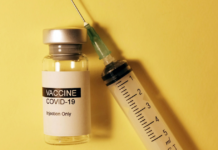A Surrey, BC father died after a hospital cancelled his potentially life-saving kidney surgery because of the coronavirus pandemic.
The hospital cancelled the procedure on March 16, one day before the surgery was supposed to take place, citing it as a non-essential surgery.
“I called the hospital and asked why. They said non-essential surgeries are being cancelled,” said Walcroft’s wife Delia Oliveira.
“I’m sure I’m not the only one this has happened to and I’m probably not the only one this is going to happen to. I’m worried that the hospitals are bare and the focus is on COVID-19 — and life goes on. People are sick with other stuff as well.”
On April 15 Walcroft was supposed to see a specialist and potentially reschedule the procedure but he never had the chance to, since he died on that day.
In Ontario, the University Health Network estimated last week that around 35 people have died in the province from cardiac issues due to cancelled or delayed procedures.
“I understand that a report has been released today by UHN with respect to cardiac deaths and it has been estimated that approximately 35 people may have passed away because their surgeries were not performed,” said Ontario Minister of Health Christine Elliot during a daily coronavirus briefing.
“That’s not something any of us want to hear, certainly was not intended because the best medical decisions were made, but as I said before any death is a tragedy. It’s something that has happened, I don’t want to call it collateral damage because they are deaths and that is very concerning and sad to all of us.”
During the Ontario premier’s daily briefing on Monday, Minister Elliott indicated that the government was looking at the possibility of creating COVID-19-only hospitals so other hospitals can begin to resume elective surgeries.
A report by the Financial Accountability Office of Ontario (FAO) found that hospital occupancy is down to 69% from the 96% occupancy rate before the outbreak began.
Between March 15 to April 22, the FAO estimates that 52,700 procedures were either cancelled or avoided.





















